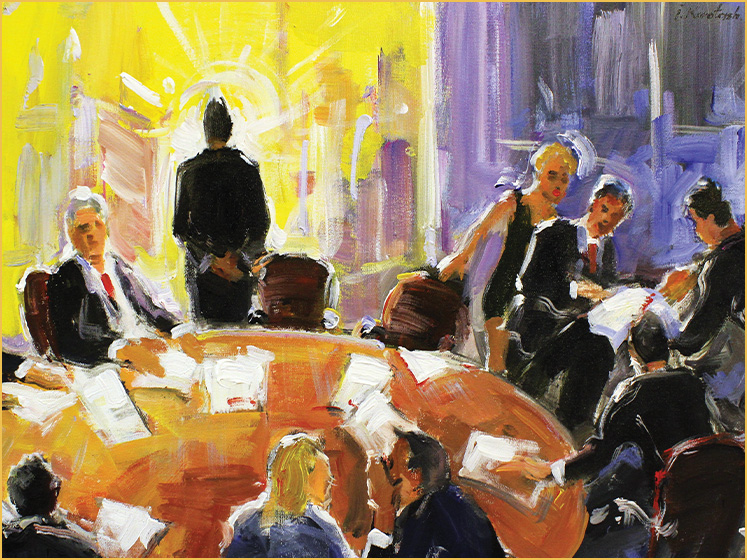FORT LAUDERDALE NFT LAW ATTORNEYS
We Proudly Guide Clients Through This Emerging Area of Law
Over the past few years, the cryptocurrency and broader digital asset industry has risen in popularity, particularly non-fungible tokens (NFTs). At Stok Kon + Braverman, we are committed to helping clients across Florida navigate this emerging area of law so that they feel confident their NFT investments are fully protected from fraud and other threats.
What Is an NFT?
NFTs for digital creative works are premised on blockchains, which are permanent, unchangeable digital ledgers that record transactions as “blocks” of computer code. The block codes are time stamped and linked together to comprise a digital asset. Blockchains also work as decentralized networks that transparently reveal the history of transactions for digital assets. Blockchains are also supposed to make it impossible for recorded digital assets to be pirated, modified, or deleted.
Digitally transferrable assets exchanged between two parties in the blockchain ecosystem are called “tokens.” While Bitcoin or other cryptocurrency tokens are identical and readily exchangeable for equal value ,NFTs on the other hand, have a unique identification code and metadata that distinguishes each NFT from the next, and represents items on the blockchain that cannot be replicated.
Since each NFT contains data that distinguishes it from every other NFT, it is a non-fungible, one-of-a-kind asset. Additionally, NFTs use software code called “smart contracts” that can be crafted to provide significant benefits to NFT creators. Smart contracts are open-sourced blockchain protocols that directly control the transfer of digital currencies or assets between parties under certain terms and conditions.
Smart contracts can do the following:
- Establish limitations on how the NFT is used after it is purchased
- Automate royalty payments from resale transactions
- Prove ownership
The code for the smart contract is permanently minted into a token on a blockchain and serves as a non-replicable digital certificate of ownership of a digital creative work. This technology allows creators to have more control over the value and the conditions of the digital works they put up for sale and also establishes new distribution channels of art, performance access, and other valuable property.
Please call us today at (954) 237-1777 or contact us online to arrange an initial consultation.
COMPREHENSIVE LEGAL SERVICES
How Can We Help You?
Bankruptcy
Commercial & Business Law
Appellate Litigation
IMMIGRATION LAW
PROBATE LAW
FAMILY LAW
REAL ESTATE LAW
COMMERCIAL LITIGATION
Divorce
Non-Compete & Non-Solicitation
Legal Issues Concerning NFTs
- Data Hosting & Storage: An NFT and the digital asset it represents are usually stored separately. The NFT is stored on the blockchain. It contains information on where the digital asset is located and is connected to the digital asset through a link. However, if the digital asset is deleted or the server hoisting it malfunctions, then the link can be damaged and the NFT becomes worthless because it is no longer associated with the digital asset. There also isn’t a way to back up the NFT, so the purchaser might be left without recourse in this situation. Depending on what the NFT is used for, this can result in costly business interruptions, regulatory record keeping violations, and loss of data.
- Royalties: Smart contracts facilitate the distribution of funds for royalty payments to the creator whenever the NFT is resold. However, these automated resale royalty payments don’t always occur unless the NFT is resold through the same platform. Resale rights to creative works are not recognized by U.S. law, which means that artist have no recourse for unpaid resale royalties.
- Data Protection Laws: There are laws that give individuals the right to erase their personal data, however, blockchain poses an obstacle when it comes to this right. Blockchain technology can also make it impossible for people to exercise their right to rectify inaccuracies in their personal data. This means that NFTs with personal information data might violate data protection laws.
- Intellectual Property Rights: With people of all backgrounds getting into the NFT market, many are not familiar with the legal restrictions on copyrighted work. This can lead to infringement liability if they purchase the underlying art that is associated with the NFT, but the original creator is the true copyright owner who retains the exclusive right to copy, distribute, modify, publicly perform, and publicly display the art (unless specifically granted to someone else). If an NFT buyer discovers the rights associated with the underlying art were misrepresented and they face a loss in value, then the NFT seller might be liable under a variety of legal theories.
If you have more questions about NFT laws, then please get in touch with Stok Kon + Braverman by calling (954) 237-1777. You can also complete our convenient online form to set up a free case consultation.
OUR FULL-SERVICE LAW FIRM IS READY TO ASSIST YOU
Reach out to our dedicated team of attorneys for legal solutions tailored to your unique goals.
REAL CLIENTS. REAL REVIEWS.
REAL CLIENTS. REAL REVIEWS.
Don't Take our word for it. See what some of our clients have to say it.




